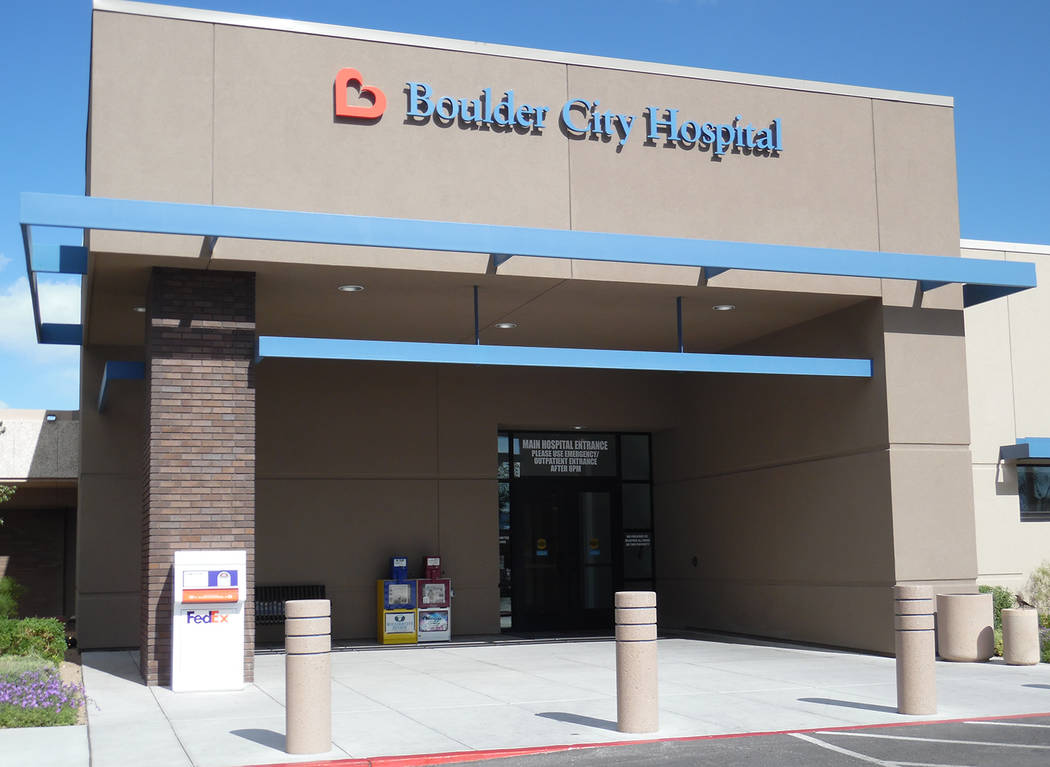Proper disposal of ‘sharps,’ medications ensures safety for all
Did you know that Boulder City Hospital cannot accept sharps or medications for disposal? Safe disposal of these items is very important for the safety of the community and the environment.
“Sharps” is a medical term for devices with sharp points or edges that can puncture or cut skin. These include needles, syringes, lancets, auto injectors (including epinephrine pens), infusion sets and connection needle/sets.
Disposing of used sharps safely is different from state to state and in some cases, locality to locality. No matter where you happen to be, all used sharps should be placed in a strong, plastic container. Sharps should never be thrown loosely into the trash or toilet.
Sharps that retract after use, or are very small, should be disposed of like all other sharps. Sharps should never be recycled.
If you are given a strong plastic container with new sharps or purchase one at a pharmacy or online, use it to collect sharps after they are used. You may also place used sharps in your own strong, plastic container like an empty laundry detergent or bleach bottle until the container is three-quarters full. Then, seal the container with duct tape and label, “do not recycle.” Put the plastic container in the household trash.
Currently, there is not a community sharps disposal program in Clark County. Republic Services does have a paid service that offers at-home disposal solutions with their medical sharps and needle mail back kits. Visit http://www.republicsharps.com for more information on this program.
Further information on safe sharps disposal can be found at https://safeneedledisposal.org.
Proper disposal of prescription and over-the-counter medication will protect the environment and ensure medication doesn’t end up in the wrong hands. Improperly discarded medications can pollute our water supply and affect fish and wildlife.
The Clark County Water Reclamation District, in conjunction with the Boulder City Police Department, Metropolitan Police Department, city of Mesquite Police Department and North Las Vegas Police Department, created the Medicine Disposal Program. This program provides an opportunity for residents to safely and anonymously dispose of any unused, expired prescriptions or over-the-counter medications. Drop-off boxes are inside local police department substations, providing a secure method for disposal.
Visit the medicine disposal locations map on the Pain in the Drain website, http://www.paininthedrain.com/medicine-disposal-drop-off-locations, for locations near you.
If you are unable to get to one of the drop-off locations, or if you have a small amount of medicine to dispose of, placing outdated or unneeded medications in the garbage is the best way to get rid of them. When throwing away medications, follow these steps:
Step 1: Remove your personal information from the prescription container.
Step 2: Add water and absorbent material, such as cat litter, sawdust, dirt, salt or flour, to bottles of pills before recapping to discourage unintended use.
Step 3: Tape the lid shut.
Step 4: Put the medicine container in another container, such as an empty margarine tub.
Step 5: Double-enclose the container in a bag or other waste container to prevent identification of the drug, or to prevent a glass container from breaking.
Step 6: Place in the trash.
Medications should not be flushed. When you flush medication down your drain, it ends up at a water treatment facility. These ingredients can remain in the treated water when it is released into the water cycle. The presence of these substances in the environment is emerging as an important national and international issue. Although the concentration levels of these products in the environment is very low, research and monitoring are continuing worldwide.
Putting medications down the drain is not just a local concern. Increasingly, prescription and nonprescription medications, many of which are not effectively destroyed by sewage treatment plants, are finding their way into streams and drinking water supplies. A study conducted by the United States Geological Survey found that 80 percent of the 139 streams sampled across 30 states detected very low concentrations of chemicals commonly found in prescription drugs. While the concentration levels of these products are very low, they may be enough to cause adverse effects in the environment and to human health.
To Your Health is provided by the staff of Boulder City Hospital. For more information, call 702-293-4111, ext. 576, or visit bouldercityhospital.org.
















